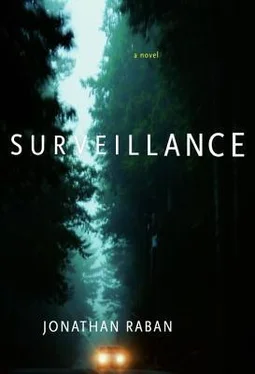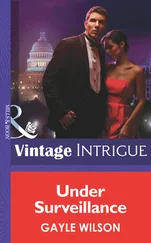Sometimes he’d pretend that his rage was noble, altruistic, all on Ali’s behalf: how dare they fuck over the world into which she was just now beginning to step out? These crookedly elected, braggart thugs in business suits were systematically poisoning the future of Ali’s entire generation — and not just of her generation, either, but of every generation yet to come. But if that were truly Tad’s concern, his only emotion would be sorrow, and sorrow, strangely, was the least of his feelings. When he saw the browning of Mount Rainier, read of the melting arctic ice cap or the murderous inferno that blazed across the Middle East and South Asia, when the U.S. military practiced besieging American cities with tanks, artillery, and armored checkpoints in the name of “quarantine,” when the Supreme Court became the brass-knuckled enforcer of the presidential will and whim, what Tad felt was an adrenaline rush of angry elation. It was like getting off on porn, this secret relish for the wicked drama of it all.
Maybe he’d spent too long working in theater and could no longer distinguish real life from a thrillingly gory production of Tamburlaine, whose title role Tad had long dreamed of playing, and whose speeches he’d sometimes used as audition pieces for roles whose directors might doubt his capacity to do butch with suitable conviction:
Now hang our bloody colours by Damascus,
Reflexing hues of blood upon their heads,
While they walk quivering on their city-walls,
Half-dead for fear before they feel my wrath.
Certainly, if you looked for an author of this administration, it’d have to be Marlowe, or possibly Webster. Only an Elizabethan with a strong stomach for Grand Guignol could possibly have written the script for what was going on now.
Tonight the bloggers were off on the trail of laundered money that went straight through the back door of the White House, and the case of the former director of the FBI who’d either jumped or been pushed from the eighteenth floor of a hotel in Baltimore on the eve of his appearance before the grand jury investigating the Vasico affair. The president had made another speech — the usual Tamberlainish stuff about scourging kingdoms with his conquering sword. Great strides were being made in the war of Good against Evil, most of them in secret, the president said, but it would not be long before the American people learned of the noble victories already accomplished in their name. The bloggers were sifting through the text of this speech like soothsayers reading goats’ entrails. It was noted that when the president said “Patriotic America knows its strength. To all nations, we say…” the initial letters of the first eight words ominously spelled out “PAKISTAN.”
Codes, portents, plots, chicanery: Tad was up to speed on them all. Swigging from the bottle of Evian water beside his rainbow mouse pad, he thought of how the ambit of his loathing must now widen to include his new landlord, yet another grinning monkey face in an outsize plumed helmet, as Le Canard Enchainé portrayed the president. Far from being depressed by Charles Lee’s blatant threats, he felt hyped by them. Tad Zachary had always enjoyed fights on stage, and he looked forward to this one: a labor of love and hate, whose twin poles he’d increasingly, during the last five years, become unable to tell apart.
LUCY, too tired to sleep, lay in bed watching the news on the postcard-size screen on the TV-clock-radio on her dresser. So that was what all the commotion that evening had been about — they’d evacuated Safeco Field.
A man “of Middle Eastern appearance” had been spotted hurrying out at the start of the seventh-inning stretch. Police had followed him to his car, a blue Chrysler with Canadian plates. When the mobile forensics lab was summoned, “traces of explosive residue” were found in the carpet of the trunk.
It was the clown on the ferry — of course — and Lucy knew exactly what must have happened. Shaking down his car at the terminal, the National Guardsmen, with their ammo-tainted fingers, would have left traces of explosive all over everything. The guy had left in disgust at the performance of his blessed Blue Jays, down five-nothing to the Mariners, the losingest team in the American League.
Now they were still frantically searching the stadium for a bomb, and reporters on the scene were hyperventilating over the capture of a terrorist “believed to have links with Al Qaeda.”
For a nanosecond, Lucy thought of dialing 911 and correcting the police’s misreading of his flight from the game: he was no more Al Qaeda than she was the Klan. But she’d be on the phone half the night — on hold for ten minutes at a time, asked to spell her name a dozen times over, stuttering wildly, failing to make herself credible to the goon in charge. Let them figure it out in their own sweet time; and it would do that pestering nuisance no great harm to cool his heels for a few hours in the pen.
News just in: Woman dies of heart attack in Seattle stadium evacuation.
So he’d actually killed someone. Or rather, they had. “Woman dies of someone else’s overheated imagination,” more like.
“…reporting live from Safeco Field, this is Tamara Gold for KIRO 7 Eyewitness News.” The tiny screen barely contained the bug-eyed, breathless Tamara, who looked as if she herself were about to go off like the so far undiscovered bomb.
With thirty thousand people summarily pitched into the streets, and with fears of an imminent explosion, there was no other news — no weather, even, and certainly no mention of a fatal car accident on Whidbey Island, which was why Lucy had tuned in.
JOLTED AWAKE from a dream just after midnight, Alida was multitasking: shiny-faced with Clearasil, she was listening to “Wake Me up When September Ends” on her iPod and reading Agatha Christie in the cone of light cast by the hooded halogen bulb on its metal stalk. Insomnia, once a cause of anguish to her, was now a source of pride. While the rest of the building slept, Alida had the world to herself, in the heady company of Jane Marple and Billie Joe Armstrong. With a book propped on the quilted comforter and good music in her ears, she was in charge of her life in these secret watches of the night as she never was during the day.
A pulsing light, now red, now white, played on the thin blue cotton drapes on her bedroom window, as the laser warnings bounced off the low clouds overhead. The lasers were new, put up a few weeks ago to keep airplanes from flying over the city. Alida was still getting used to the spooky quiet of the sky, now empty of the jets that had roared straight over the Acropolis on their approach to SeaTac Airport. But she liked how the lasers fitted their regular flashes to the beat of Green Day’s drummer, Tré Cool.
Agatha Christie was her latest literary discovery. Mr. Kawasuki had a whole shelf of her mysteries in his store, nearly all of them battered, grungy paperbacks at 25¢ apiece. Alida loved Agatha Christie more than any other fiction writer because she understood human algebra. It was what the slow fussbudget Miss Marple did all the time — elimination, substitution, intersection. Everything was logical and necessary, however confusing it seemed right up until the moment when Miss Marple eventually figured out the sum over her knitting, and you realized that of course the pipe-smoking Swede had done it. Alida was sure that if she read enough Agatha Christie books she’d be able to live inside Miss Marple’s mind, take over her brilliant mental machinery, and apply it to her own project. At present, she was on her third, The Mirror Crack’d from Side to Side , and already could feel stirrings of the latent deductive powers with which she’d astonish her friends in the not-too-distant future.
Читать дальше












